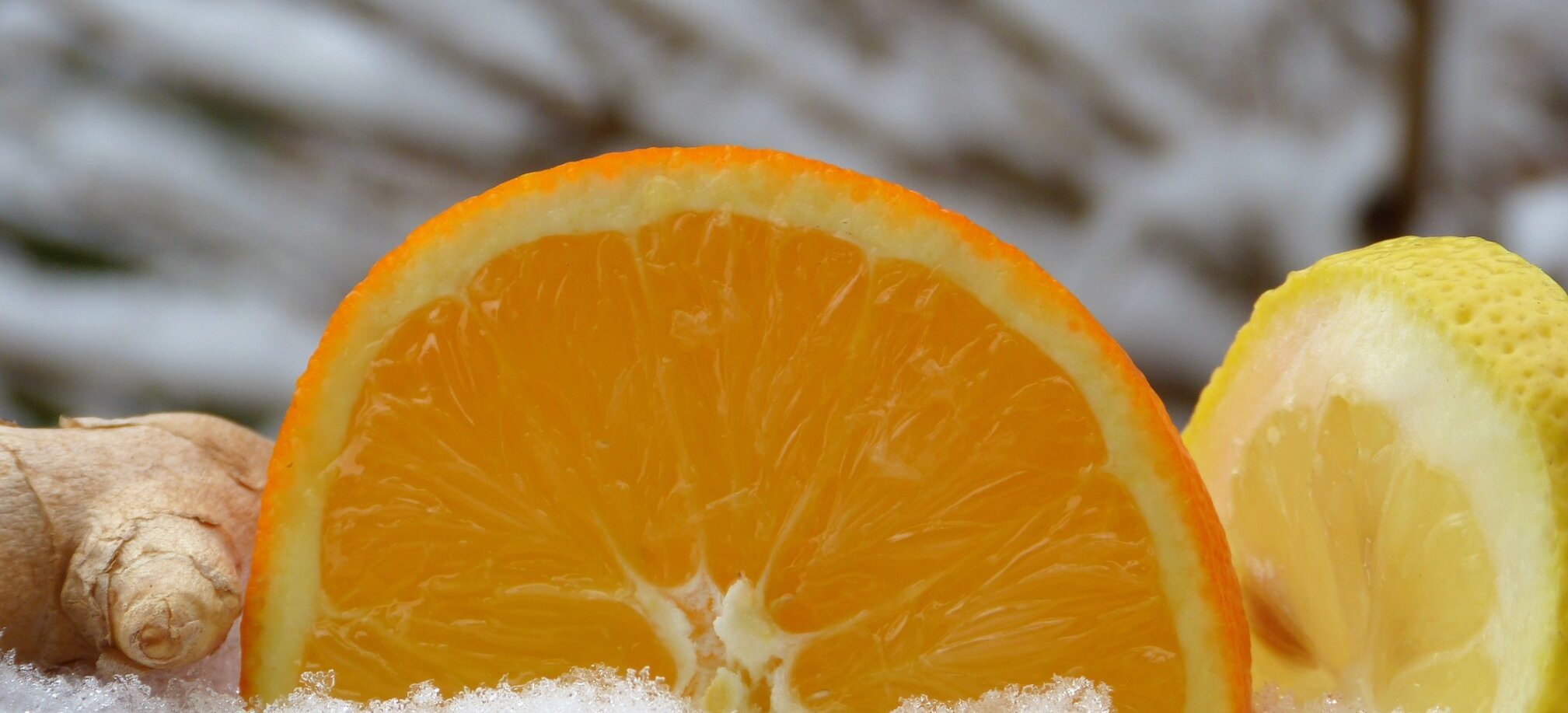It is valuable for the winter and the ski season:
- because it strengthens the body's defences
- because it contributes to energy metabolism and regulates the oxygen supply to the body's cells
- because it improves the absorption of iron, which is very valuable for women aged between 30 and 40 (who often suffer from an iron deficiency)
- It protects the cells from oxidative stress
If you don't get enough vitamin C in your diet (the body cannot produce it itself), you will suffer more often from exhaustion and fatigue, reduced performance and more infections may occur. If symptoms of this kind do happen, check beforehand whether you are getting enough sleep (at least 7 hours), are exposed to little glare from the TV and PC in the evening, drink enough water (at least 1.5 litres per day) and have a balanced diet and spend time in the fresh air every day.
If we turn the focus back to vitamin C, then the daily intake of vitamin C is recommended through the following foods. The DGE (German Nutrition Society) recommends 100 milligrams of vitamin C per day.
So where do you get this vitamin from? The following foods are rich in vitamin C:
- Sea Buckthorn
- Rosehip
- Parsley
- Blackcurrants
- Green chillies
- Kale
- Sweet pepper
- Lemons
- Brussels sprouts
- Broccoli
- Kiwis
- But potatoes and tomatoes also have good vitamin C content too.
The DGE provides a little guidance on the daily requirement from food: Half a pepper and a small glass of orange juice are enough.
This will help you to find out whether you are eating enough vegetables and fruit per day. 5 portions of vegetables and fruit per week are recommended. When eating vegetables, make sure that they are not completely boiled, otherwise they will lose many valuable nutrients. It is better to steam vegetables. In the evening before going to bed, fruit is not recommended because the fructose starts working which can delay falling asleep.
You can also order individual foods such as sea buckthorn, rosehip or blackcurrant in powder form and stir them into a yoghurt or smoothie. Of course, there are also food supplements, but food or a balanced diet is always preferable. In the ski hut’s you could also order a water with lemon. Then you have already filled up on valuable vitamin C.
As you can see, not only is vitamin C important for winter and your health, but there are always other factors that contribute to your vitality. But taking care of vitamin C in winter is a really good immune system booster.
Get some vitamin C-rich foods, build them into your dietary routine and then head out into the fresh air in Ski amadé.


